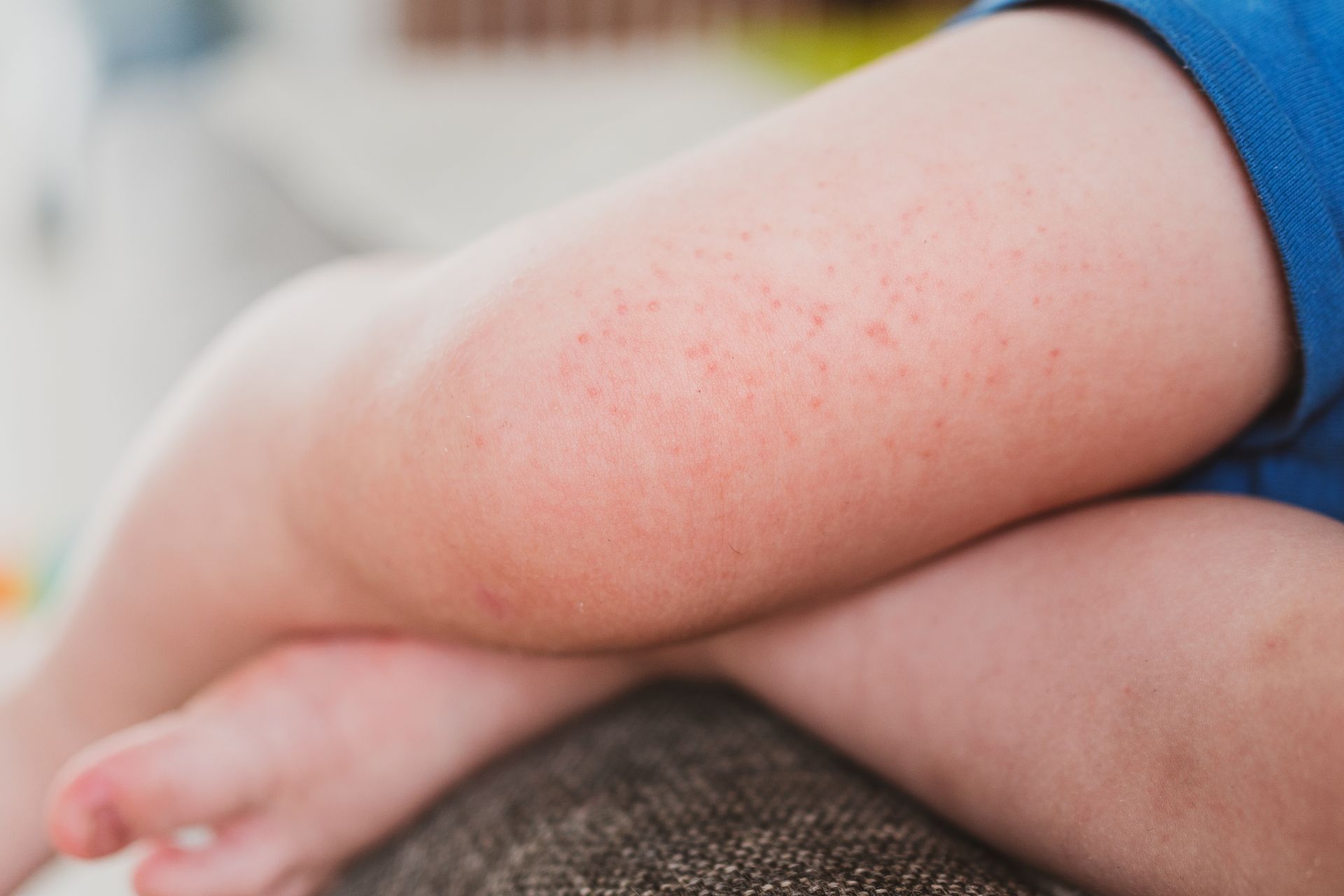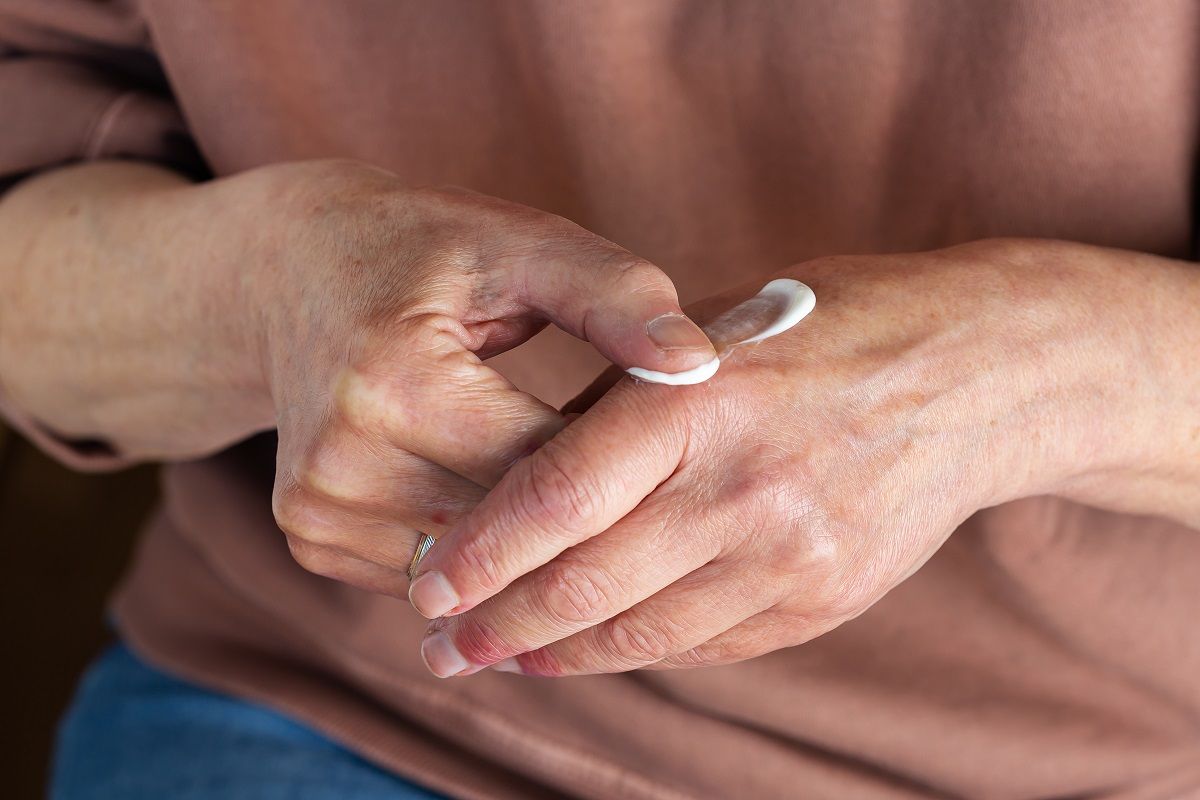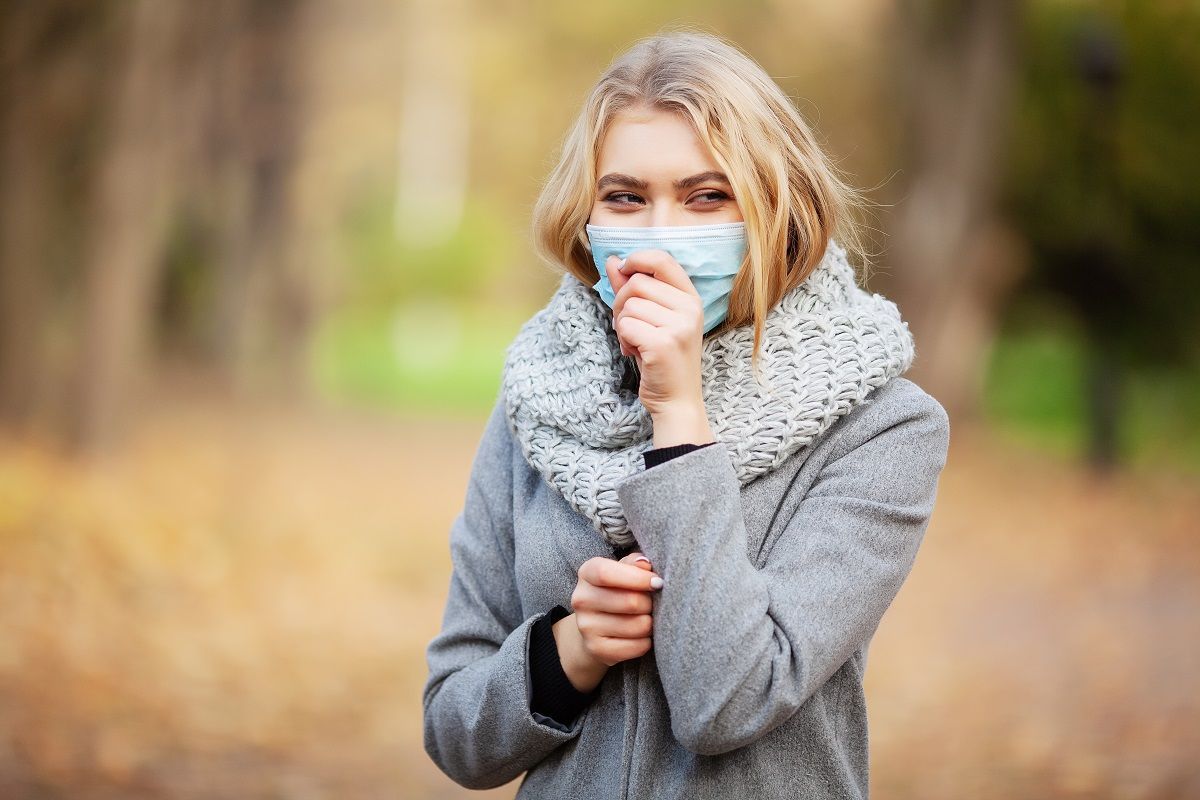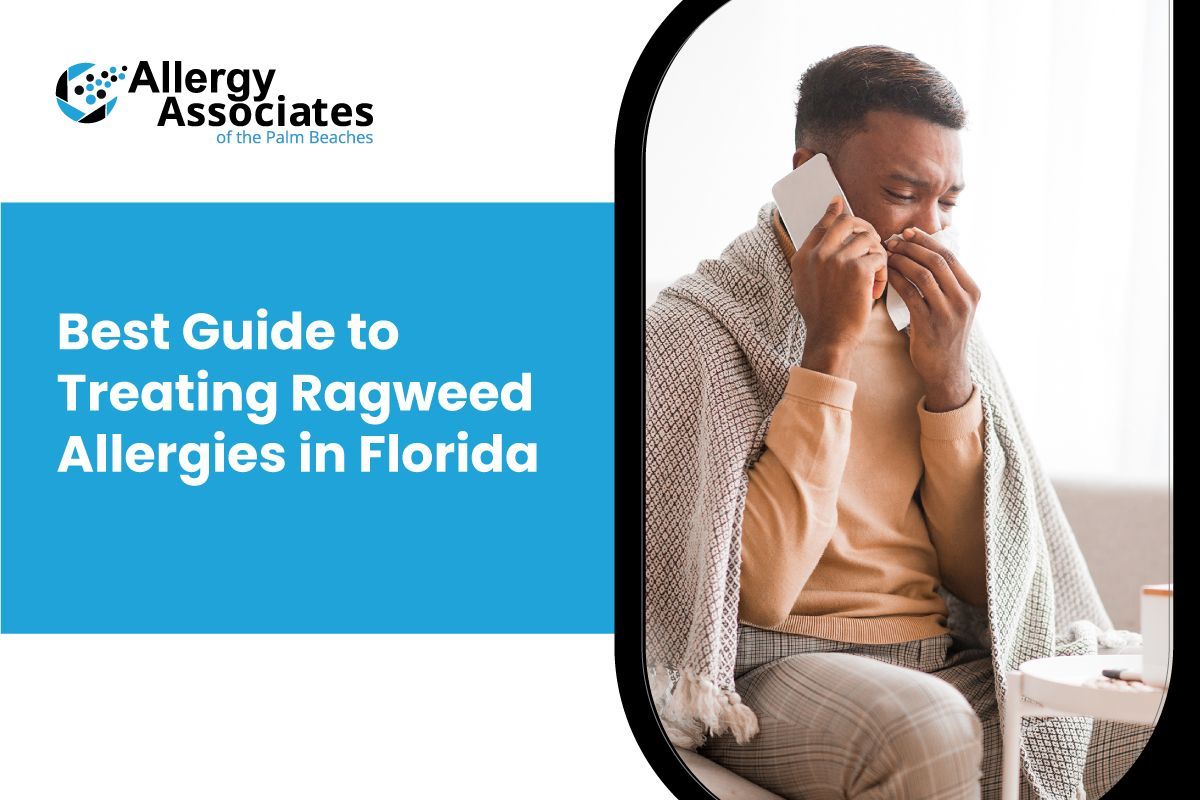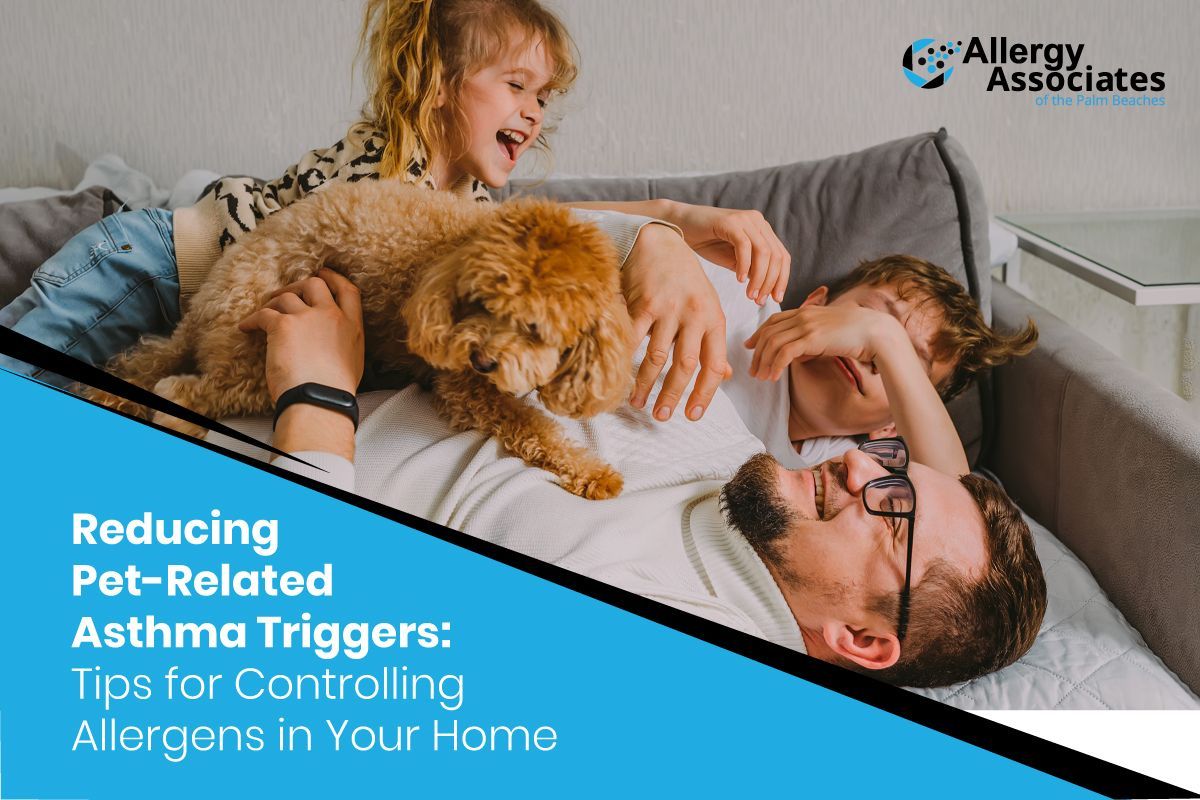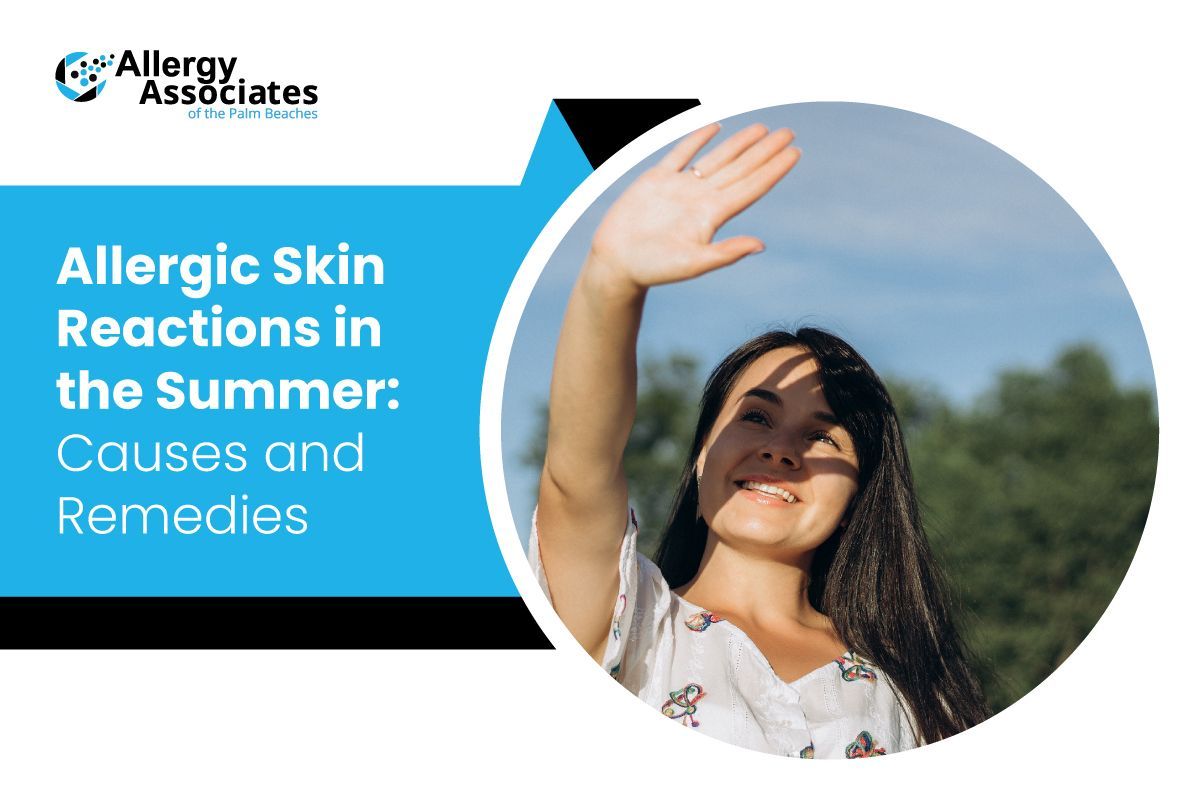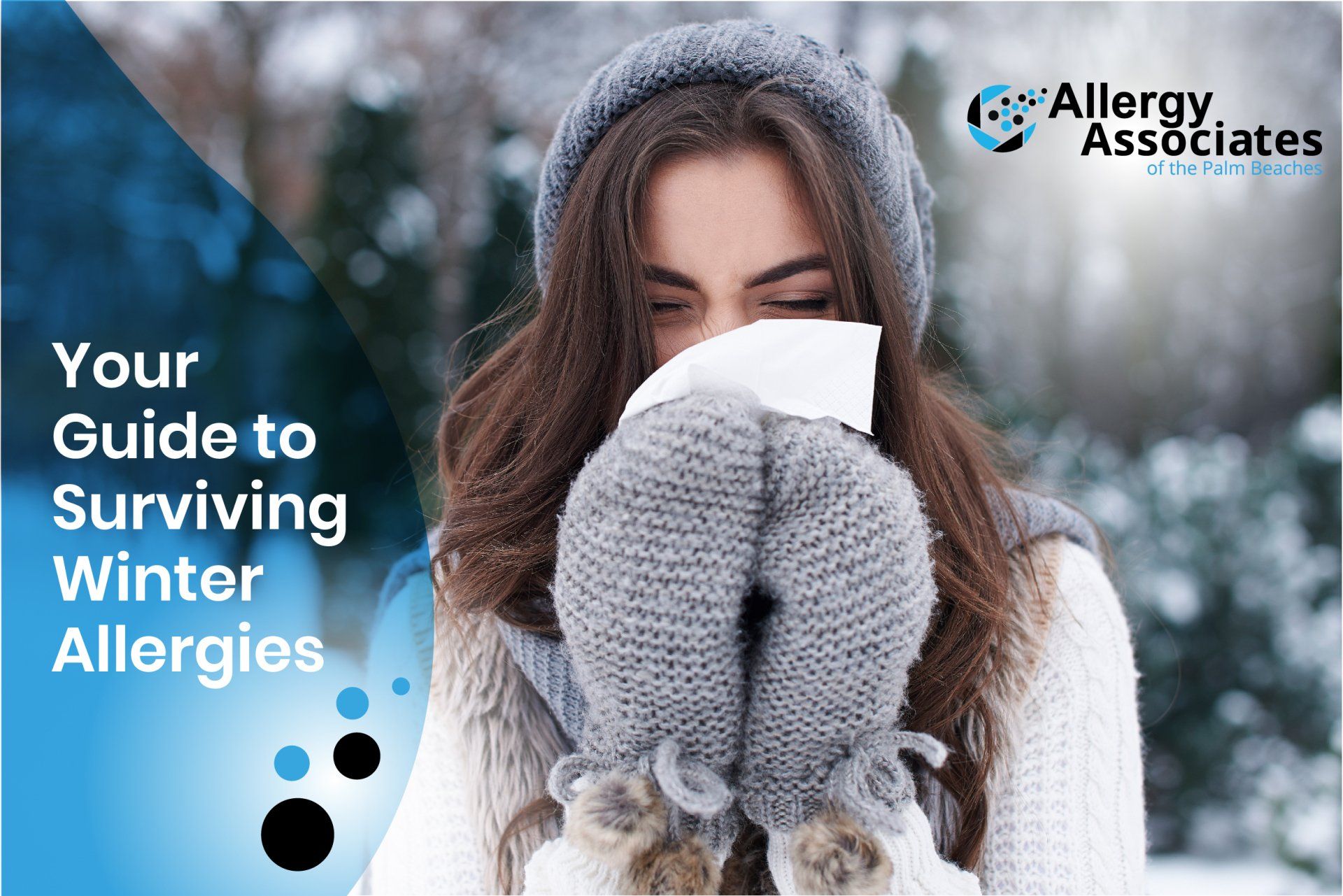
The cooler months bring a welcome respite if you suffer from seasonal allergies. Winter brings its own set of allergy triggers, and between holiday parties and colder weather, it can be hard to know what's causing you to sneeze and wheeze.
Anyone who has spent the colder months in the Sunshine State knows that things are not always so sunny, as many Floridian allergy sufferers experience year-long allergy symptoms. Let's explore the factors that cause winter symptoms and how to prepare for allergies in the winter.
Florida Allergies in the Colder Months
Florida isn't quite a winter wonderland state. You probably picture sunny beaches, outdoor activities, and mild weather when you think of Florida. However, this state has some of the country's hottest and most humid climate. This humidity hangs around year-round, making our winters feel like spring.
Although allergies in the state don't constitute the same problem as in other parts of the country, one can still suffer from indoor and outdoor allergies. The same thing that causes allergies in Florida during the winter months also causes allergies during the spring and summer.
Humidity isn't the only reason Florida residents experience allergy symptoms year-round. Surprising to most, just because we don't have snowmen and sledding doesn't mean we don't have cold weather. It is prevalent for the temperatures to drop at this time of year, which can be uncomfortable for allergy sufferers. In addition to sneezing and runny noses, winter allergies also cause coughing.
Common Causes of Allergies in the Winter
Allergy season usually occurs during the spring months when plants begin to flower once again after being dormant during the winter. If you live in a warmer state like Florida, temperatures don't get cold long enough to eliminate allergens. Therefore, it's not uncommon for allergy sufferers to experience allergy symptoms during the fall and winter.
Here are the common causes of allergies in Florida during the colder months.
Pollen
The most common pollen sources are grass, trees, and weeds like nettles, dock, and ragweed. The wind carries their tiny, lightweight pollen grain, causing seasonal allergies such as hay fever or allergic rhinitis. As a result, you may experience winter allergy symptoms such as sneezing, itchy eyes, and a runny nose. Pollen may be less intense during the winter season, but it can hit you just as hard as any other time of the year if you're prone to allergies.
Mold
Mold spores are bound to flourish in areas with high moisture levels. They live everywhere — on logs, fallen leaves, and in moist places like bathrooms and basements. Tiny spores from these fungi can cause year-round symptoms similar to pollen allergies. A mold problem could develop if you're not quickly cleaning up kitchen spills or your house isn't properly ventilated. Mold can also grow on wet clothing and shoes, so dry things off as soon as possible after coming indoors.
Pet dander
If you have pets, dander — tiny skin flakes from pet fur — is likely a significant contributor to your allergy symptoms. It may seem like your pets are cozier in the cooler months, but that doesn't mean they aren't tracking pollen on their fur. Pet dander is incredibly irritating if you're prone to asthma or eczema. Try to keep your furry friends out of the bedroom. Bathe them at least once a week and get an air purifier for your bedroom.
Dust mites
Dust mites live inside homes where they feed on human skin flakes and thrive in humid climates. Symptoms of dust mites include sneezing, runny nose, red eyes, scratchy throat, and coughing. These mites live in the dust and debris that accumulates in dark areas like mattresses, pillows, couches, carpets, and stuffed animals. They cause year-round symptoms for people who are allergic to them.
Cockroaches
In Florida, cockroaches are usually just a nuisance pest. However, they can cause asthma and allergic reactions in some people. While they are most active during warm seasons, they can remain active during the winter months as well.
Keeping Your Allergies at Bay during the Cold Months
You don't need to suffer just because it's cold outside. In fact, there are many ways to treat winter allergies, including:
Avoiding allergens
Keep an eye out for signs of allergens. The last thing you want is to be in a situation where you cannot stop sneezing. Stay indoors whenever pollen counts are high or when it's windy outside. Don't hang laundry outside during allergy season because pollen and other allergens can stick to the clothes, sheets, and towels. Instead of letting your laundry air dry, use a clothes dryer. Washing clothes in hot water also kills allergens.
Doing nasal irrigation
Nasal irrigation, also known as nasal douching or nasal lavage, involves flushing the nasal cavity with saline solution to cleanse it. It's an effective way to relieve sinus pressure and irritation due to allergens, such as pollen and dust. You can buy saline solutions online or make your own using kosher salt mixed with distilled water. Use a neti pot or saline spray bottle to flush the nasal passage. These tools help rinse your sinuses and clear them from allergens and irritation.
Keeping pets off furniture
Even if you're not allergic to your pets, keeping animals off of furniture will decrease the amount of pet dander in the room. You'll also reduce the dust that collects on furniture from pet hair. If your pet sleeps with you, wash your bedding often as pet dander lingers in the air.
Vacuuming regularly
Make sure to vacuum with a HEPA filter at least once per week to get rid of dust and other allergens stirred up by moving around the house, opening closets, and tracking in pollen from outside on your clothes and shoes (and children's clothes and toys).
Maintaining cleanliness
Wash or dry-clean bedding frequently and vacuum carpets regularly. Rather than using a feather duster, which stirs up dust in the air, dust with a damp cloth. Allergens like pollen can cling to footwear and get tracked through your home, so stop them before they start by removing shoes at the door.
Keeping up with your allergy medicines
Make sure you have enough allergy medicine on hand; this includes prescriptions and over-the-counter (OTC) medications. Follow your doctor's instructions or the package label when taking these medicines.
Drinking plenty of fluids
Stay hydrated in the winter by drinking water throughout the day and avoiding caffeinated or alcoholic beverages, which can be dehydrating.
Utilizing an air purifier
Air purifiers can help remove airborne particles from the air in your home. Those with central heating should consider installing a HEPA filter to remove airborne pollutants. In addition, keep the humidity below 50 percent in your house to minimize dust mites, mold, and mildew.
Don't Let Your Allergies Take Control!
Many people with seasonal allergies automatically think they will be miserable in the spring and fall. But the colder months in Florida do not mean allergy season is on hold. These winter months can also bring on their own allergy symptoms, leaving you stuffed up and sneezy as the weather gets even colder.
If you find that over-the-counter medications aren't doing the trick, you can discuss treatment options with an allergy specialist here at
Allergy Associates of the Palm Beaches. Call us at (561) 626-2006 to schedule an appointment or
find a clinic near you.
Allergy Associates of the Palm Beaches
Allergy Associates of the Palm Beaches | All Rights Reserved.



